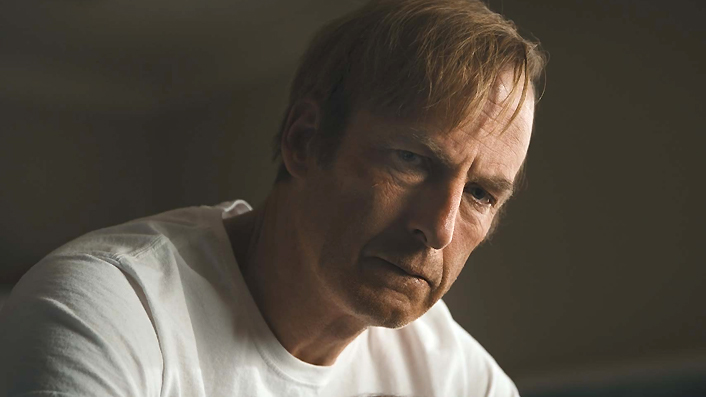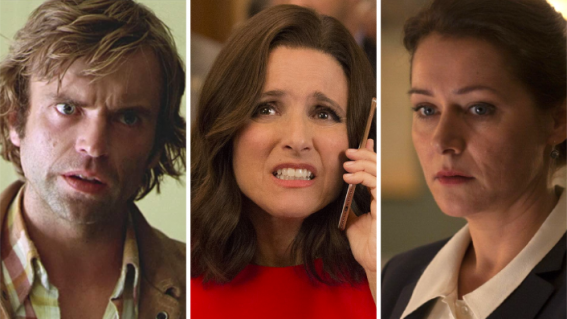5 reasons why Better Call Saul is better than Breaking Bad
With just one season left, Better Call Saul has outshone its predecessor.
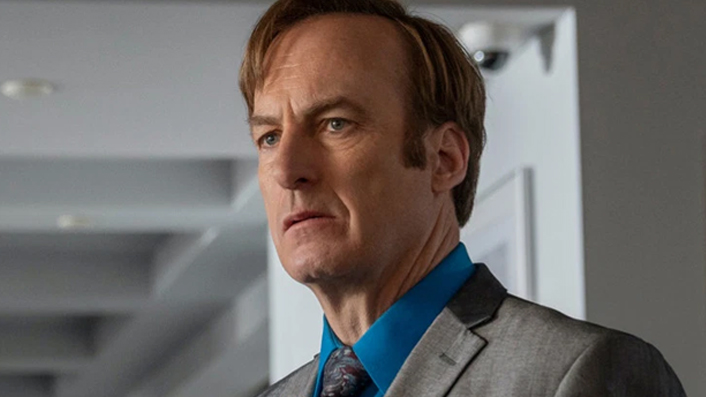
Now five seasons in, with just one to go, has Better Call Saul outshone its predecessor?
Breaking Bad is a damn fine show, and rightly considered one of the shining jewels of the Golden Age of Television. But Dominic Corry is here to tell you why he considers less talked-about prequel Better Call Saul, which just wrapped up its fifth season, to be a superior programme.
See also:
* All new streaming movies & series
* 20 great thrillers to stream right now
* The best thrillers of last decade
1. The Storytelling
In telling its tale of a man who “goes from Mr Chips to Scarface”, Breaking Bad would often veer wildly in how it told its story. The producers admitted that they enjoyed writing themselves into a corner without any foreknowledge of how they would get out of it. And it showed. The sharp changes in direction from one episode to the next repeatedly caused narrative whiplash.
On the other hand, Better Call Saul, in filling out the backstory of morally compromised lawyer Saul Goodman aka Jimmy McGill (Bob Odenkirk), feels much more deliberate in its narrative. The arc of its lead character plays out with a sense of calculation that often seemed absent in Breaking Bad, which favoured impossible scenarios that required elastic rationalising to emerge from.
That’s not to say Better Call Saul lacks the life and death tension that often provided some of Breaking Bad‘s best moments, it’s just that the tension is surrounded by a welcome intentionality that rings truer in the long run, and makes the stakes feel less contrived.
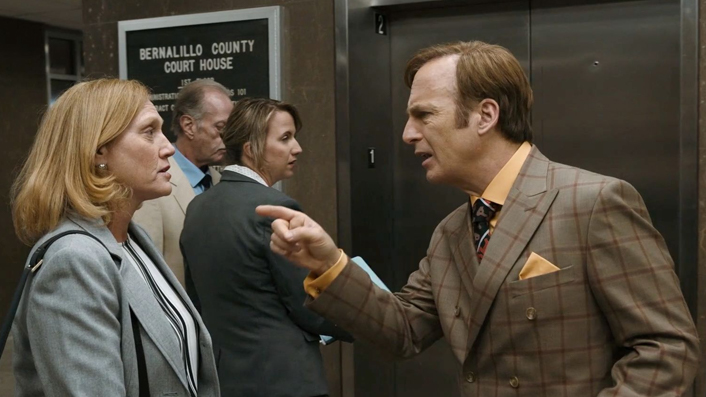
2. The Lawyerin’
There have been infinite shows about lawyers, and almost every single one of them has contributed to a misperception that most lawyers spend their days springing surprise witnesses on juries and yelling “objection!”.
Better Call Saul, particularly in its earlier seasons, has done an amazing job of portraying how the majority of lawyers actually spend their time: compiling ridiculous amounts of paperwork; milling about in county courthouses; negotiating with district attorneys for jail terms; engaging in law firm politics and waiting months for the outcomes of cases. What’s even more remarkable is that none of this was ever boring—the show has repeatedly spun comedic and dramatic gold out of the realities of legal life that no other legal show was brave enough to engage in.
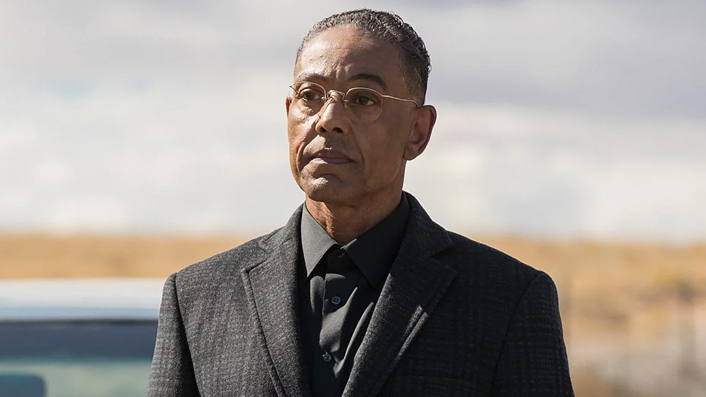
3. The Character Actors
One of the greatest things Breaking Bad did was take journeyman character actor Bryan Cranston and reveal his hitherto underutilised leading man chops. Creator Vince Gilligan had an eye for this sort of thing, and achieved something similar with supporting players Dean Norris (Hank Schrader); Giancarlo Esposito (Gus Fring), Mark Margolis (Tio Salamanca) and of course Bob Odenkirk, a veteran comedy writer and performer whose untapped dramatic potential went on to form the basis of Better Call Saul.
Along with BSC co-creator Peter Gould (who wrote the Breaking Bad episode that Saul first appeared in, thus creating the character), Gilligan has taken this trick to a new extreme in the newer series, giving meaty material to ubiquitous “that guy” actors such Michael McKean, who played Jimmy’s pious older brother Chuck, Ed Begley Jr, hilarious as Saul’s befuddled boss Clifford Main and Margolis again, who got to develop a more able-bodied version of the character we learned was actually named Hector.
These consistently underrated actors all clearly relished the chance to step up to the plate, and Better Call Saul was made all the greater for it. It was most true when it came to how the show so magnificently engaged in….
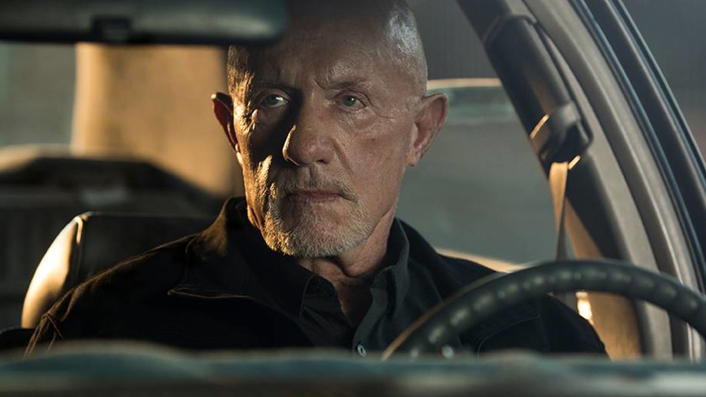
4. The Fleshing Out of Mike Ehrmantraut
Gilligan’s affection for character actors was already apparent by the time Jonathan Banks showed up in the last episode of Breaking Bad‘s second season as Gus Fring enforcer/troubleshooter Mike Ehrmantraut, and he went on to provide some of the show’s coolest and most bad-ass moments.
Banks, a familiar face for his supporting presence in everything from 48 Hrs. to Beverly Hills Cop to ahead-of-its-time 80s crime drama Wiseguy, has taken it to another level in Better Call Saul, which unfurled Ehrmantraut’s tragic backstory in typically devastating fashion.
His is the kind of character that usually rests in cliché and stereotype, but Banks’s acting (somehow heavy and subtle at the same time) combined with the sublime writing of the show, has given depth to Ehrmantraut in a manner that all crime stories could learn from. He is repeatedly at the centre of the darkest and funniest moments in the show, often at the same time.
Mike is the closest thing to a literal mouthpiece for Gilligan and Gould’s themes (remember the “half/full-measures” speech?) and Banks constantly delivers in these moments, of which there are plenty in Better Call Saul.
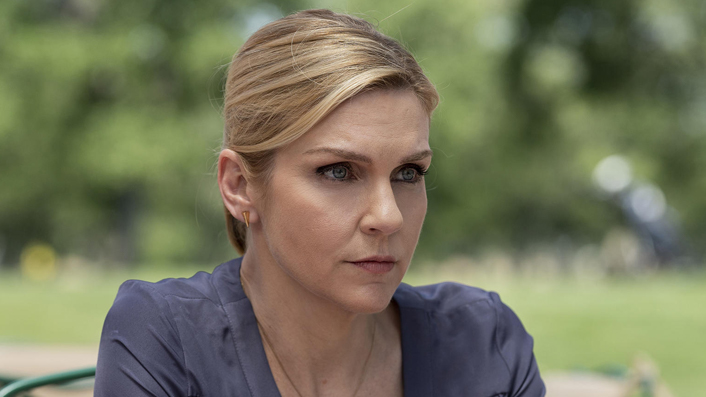
5. Kim. Fucking. Wexler.
For all of Gilligan and Gould’s elevation of previously unnoticed actors, their biggest revelation may be Rhea Seehorn, previously a sitcom supporting player, who has gone on to essay one of the most fascinatingly complex characters in the history of television in her portrayal of Jimmy’s parter-in-law/scams/romance Kim Wexler.
When Better Call Saul started, it was tempting to write her off as simply Jimmy’s motivation or conscience (Jimmy’s Jiminy Cricket), but over five seasons Wexler has proved to be as complex and unpredictable as any element of both shows. The latest season especially has provided some stand out Kim moments. Seehorn is simply divine in the role, and it will be a crime if the show ends (as it will after the next season) without her being formally recognised for her work.
Those of us invested in Better Call Saul are highly conscious of Kim’s absence in Breaking Bad, and are very concerned for her. In multiple interviews I’ve conducted over the years with Seehorn, Odenkirk, Gould and Gilligan, all have speculated to varying degrees about her fate, none willing to commit to any particular outcome. In the Breaking Bad years, Kim is just as likely to be dead as to have been waiting at home for Jimmy the whole time, simply having gone (understandably) unmentioned throughout.
It’s scary to consider what Kim’s ultimate fate may be, but as with all aspects of Better Call Saul, I will gladly follow wherever it leads. Which isn’t something I was ever as ready to say about Breaking Bad, especially towards the end. Because, you see, Better Call Saul is the superior show.





